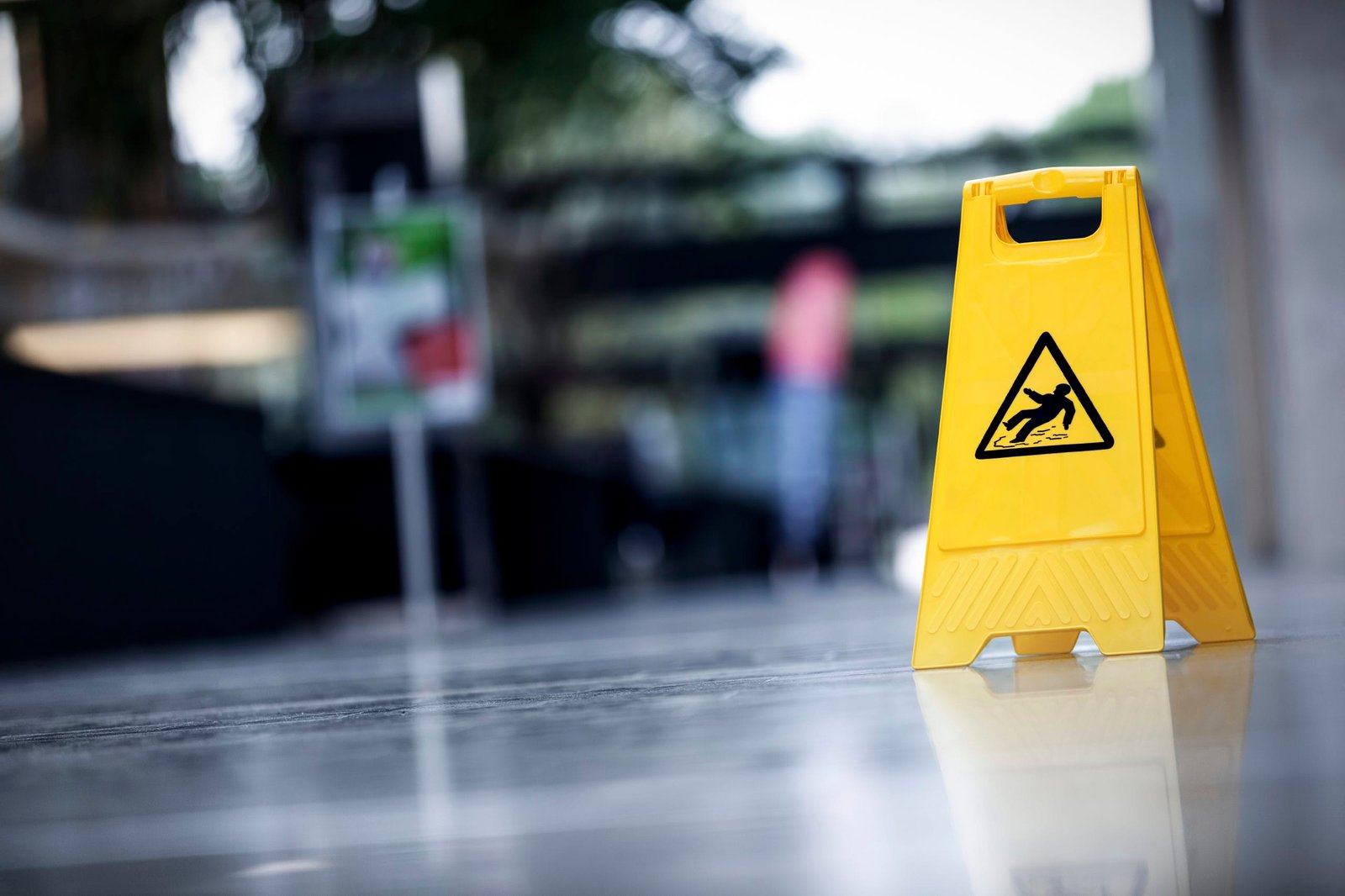


Slip and fall accidents are a common occurrence, and they can happen to anyone, anywhere, and at any time. These accidents can result in serious injuries, medical bills, and even legal consequences. In this blog, we will explore the causes of slip and fall accidents, how to prevent them, and the legal implications that may arise if you or someone you know experiences a slip and fall incident.
Wet or Slippery Surfaces: One of the most common causes of slip and fall accidents is wet or slippery surfaces. This can be due to spills, rain, snow, or recently cleaned floors. Inadequate signage or failure to promptly address these hazards can lead to accidents.
Uneven Flooring: Uneven or damaged flooring, including loose tiles, torn carpets, or cracked sidewalks, can be a significant tripping hazard.
Poor Lighting: Inadequate lighting in indoor or outdoor spaces can obscure hazards and make it difficult for individuals to see where they are walking, increasing the risk of accidents.
Cluttered Walkways: Cluttered walkways, whether in homes or businesses, can make it difficult for people to navigate safely and increase the chances of tripping and falling.
Footwear: Inappropriate footwear, such as shoes with worn-out soles or inadequate tread, can contribute to slip and fall accidents.
Maintain Proper Flooring: Regularly inspect and maintain flooring in homes and businesses. Repair any damage, replace worn-out carpets or tiles, and address uneven surfaces promptly.
Adequate Lighting: Ensure that all areas are well-lit, both indoors and outdoors. Install motion-sensor lights in high-traffic areas to improve visibility.
Clear Walkways: Keep walkways clear of clutter, debris, and obstacles that may pose a tripping hazard.
Proper Signage: Use warning signs and cones to alert individuals to potential hazards like wet floors or ongoing maintenance work.
Non-Slip Surfaces: Use non-slip mats or rugs in areas that are prone to getting wet. In bathrooms and kitchens, install non-slip flooring materials.
Footwear: Encourage employees and visitors to wear appropriate footwear for the conditions. This may include slip-resistant shoes for wet or slippery areas.
When a slip and fall accident occurs, there can be legal implications, especially if someone is injured on another person's or business's property. Here are some key points to consider:
Premises Liability: Property owners have a legal responsibility to maintain their premises in a reasonably safe condition. If they fail to do so and someone is injured as a result, the property owner may be held liable for the injuries.
Negligence: To establish a slip and fall case, the injured party must typically prove that the property owner was negligent in maintaining their property or failed to address a known hazard.
Duty of Care: Property owners owe a duty of care to those who enter their premises, which varies depending on the relationship between the parties (e.g., business invitee, licensee, trespasser). Business owners often have a higher duty of care to customers and employees.
Compensation: Injured parties may be entitled to compensation for medical expenses, lost wages, pain and suffering, and other damages resulting from the slip and fall accident.
Consult an Attorney: If you or someone you know is involved in a slip and fall accident, it is essential to consult with a personal injury attorney who specializes in premises liability cases. They can provide guidance on your legal rights and options.
Slip and fall accidents can happen unexpectedly and lead to severe consequences. To reduce the risk of such accidents, it's crucial to be aware of potential hazards, maintain safe environments, and take precautions. If an accident does occur, understanding the legal implications and seeking professional legal advice is essential to protect your rights and seek fair compensation for any injuries sustained.